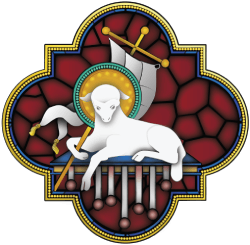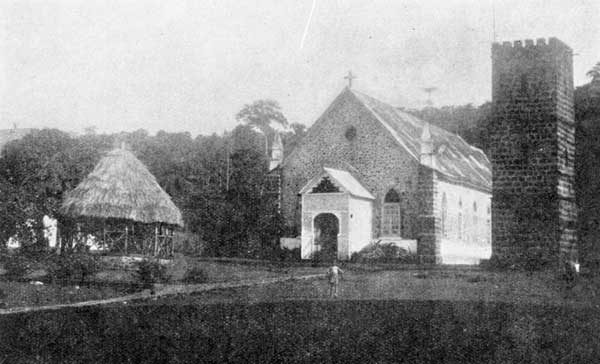The following appeals were printed in the classified section of the August 9, 1899, issue of The Living Church.
The Great Need of a Priest at Cape Mount, West Africa
The request has twice been made that I should write some strong words regarding the need of a priest at Cape Mount. No inspiration, however, seemed to come, and I was tempted to say that no stronger appeal could be made than had already been sent out, first by Mrs. [M.R.] Brierley in her last letter, written not long before she left her dearly loved work.
Her thought, no doubt, was then chiefly for those to whom she had so long given her life; but even for herself, we cannot help regretting that, though upheld by strong faith and certain hope, she was deprived in her last hours of the ministrations of a priest, which would have cheered her before she went to her rest. Other workers now in the mission have written also with much earnestness on this subject. Looking at it as one absent for a time from the field, the need seems, perhaps, more apparent than when actively engaged.
The mind naturally turns to those left behind, and pictures them in all the well-known trials and difficulties, and the thought will come: “Why is it that no one offers to go to fill the most important place in the mission, to be a head and guide and chief authority in all difficult matters, promoting unity among the workers and extending the work in many directions, as only one appointed for this special work can do effectively?” The work at Cape Mount has much of interest and brightness, and though there are times of illness and discouragement, are they not found in all lives of those who are devoted to duty in any sphere?
All along the African coast, north of Liberia, are to be seen convent schools of the Roman Catholic Church, where many children are taught and trained by priests and sisters. There are also white men of different nationalities engaged in various kinds of work, officers for native troops, merchants, explorers, and traders. In much more unhealthy places than Cape Mount, these people work and risk their lives for earthly gain. How is it that here no white man is found to do the work which has the greatest recompense?
Is there no inspiration in the lives of such men as Bishop [John] Payne [Liberia’s first missionary bishop] and Bishop [James] Hannington [an English bishop, martyred during his ministry in East Africa], not to mention others who have given up everything for Africa, and have been willing to die, though young in years, without regret, counting it no sacrifice, if by their deaths any should be saved? I have stood by the graves of the brave Bishop [John Gottlieb] Auer and the devoted Mr. [Cadwallader Colden] Hoffman and his lovely wife [Virginia Haviside Hale Hoffman], in the quiet little cemetery near the chapel at Mt. Vaughan, and the memory of their ardent devotion and triumphant faith made the spot most sacred; and it seems to me that no one can be endowed with too great talents, or too great zeal, for this work, and that the call to it must still be, as it has always been, the last command of the ascending Saviour. S.A.W.
The church at New Richmond, Wisconsin (St. Thomas’ Church), was totally destroyed in the tornado which nearly wiped out that town, on June 12th. Nothing whatever remains, excepting a hole in the ground, and a mass of wreckage about it. Altar, vestments, seats, and everything, hopelessly gone. Nor was there any tornado insurance. We ask for help to rebuild, and begin our work anew. Money can be sent to the missionary-in-charge, the Rev. W.A. Howard Jr., Star Prairie, Wis. (P.O.), or to the Bishop of Milwaukee, Milwaukee, Wis., who has been on the ground, has seen the woeful destruction, and who will guarantee this appeal.
Twelfth Sunday after Trinity, Aug 20th
Next Ephphatha Sunday (Aug. 20th) rapidly approaches, with the usual reminder to parishes within the limits of the Mid-Western Deaf-Mute Mission that offerings are needed to meet its expenses.
The Rev. A. W. Mann, General Missionary, Gambier, Ohio.
The Church Mission to Deaf-Mutes, New York, appeals for special offerings from churches, and gifts from individuals, on this appropriate day.
Rev. Thomas Gallaudet, D.D., General Manager, 112 West 78th St., New York City.
Mr. William Jewett, Treasurer, 467 Broadway, New York City.
Church and Parish
Wanted.—By a Churchwoman of experience, a position as matron in a school for girls. Address Miss E. W., care of The Living Church.
Bishop [Frank Rosebrook] Millspaugh needs five or six devoted missionaries who can live on six hundred dollars for the first year, in fields white for the harvest. Address, Bishop’s House, Topeka, Kas.
Wanted.—Organist and choirmaster. Vested choir; Catholic ritual; choral celebrations. Stipend fair, but not large. Western city. Population, 40,000. Excellent field for first-class teacher, voice and piano. Address, Archdeacon, this office.
Peoples’ wafers, 25 cents per hundred; priests’ wafers, one cent each, The Sisters of All Saints, 801 N. Eutaw Street, Baltimore, Md., also invite orders for ecclesiastical embroidery.
Wanted.—A position as governess for small children, or companion, by an educated and refined young Churchwoman References, full and satisfactory, furnished address: Clio L. Lee, Manor, Travis Co., Texas.
The appeal for a priest at Cape Mount in Northern Liberia was eventually filled. Irving Memorial Episcopal Church and the schools complex there, especially St. John’s and House of Bethany Schools, continue to thrive, and are ranked among the country’s leading educational institutions. Liberia was the Episcopal Church’s first foreign mission field, and remained an Episcopal diocese until 1982, when it was joined to the Church in the Province of West Africa.
The Tornado of June 12, 1899, which killed 117 people in New Richmond, left 1,500 homeless, and caused an estimated $18 million in damage ranks as the most destructive in Wisconsin history. The congregation of St. Thomas persevered, worshiping in homes for decades until purchasing their current church, now called St. Thomas and St. John Episcopal Church, in 1946.
Ephphatha Sunday was so called because the Gospel Reading on the Twelfth Sunday after Trinity in the pre-1979 lectionary was Mark 7:31-37, the story of Jesus’ healing of a deaf and voiceless man. The practice of taking special offerings for ministry to the deaf was instituted by the Church Mission to Deaf-Mutes in the mid-1970s. This organization was founded by the Rev. Thomas Gallaudet (1822-1902), who is commemorated on the Episcopal Church’s calendar for his pioneering ministry among deaf people.
It’s not known if Bishop Millspaugh (1848-1916) filled all five or six of his missionary slots, but his obituary recalled him as “an ardent missionary,” and under his leadership the Diocese of Kansas grew to such an extent that the Missionary District of Salina, now the Diocese of Western Kansas, was created from it in 1902.




